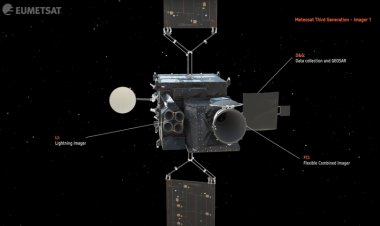life on other planets

what it means for humans
There are some scientific discoveries that do much more than advance our knowledge: they create a shift in our psyche as they show us the scale of the Universe and our place in it.
One such moment was when space craft sent back images of the Earth for the first time. Another is the discovery of life on another world, a moment that has inched a little closer today with the news that signs of a gas, which on Earth is produced by simple marine organisms, has been found on a planet called K2-18b.
Now, the prospect of really finding alien life - meaning we are not alone in the Universe - is not far away, according to the scientist leading the team that made the detection.
"This is basically as big as it gets in terms of fundamental questions, and we may be on the verge of answering that question," says Prof Nikku Madhusudhan of the Institute of Astronomy at Cambridge University.
But all of this prompts even more questions, including, if they do find life on another world, how will this change us as a species?
Flying saucers and sci-fi aliens
Our ancestors have long created stories of beings that might dwell in the skies. In the early 20th Century, astronomers thought they could see straight line features on the Martian surface, raising speculation that one of our nearest planets might be home to an advanced civilisation: an idea that spawned a wealth of pulp science fiction culture involving flying saucers and little green aliens.
It was during an era when western governments generated fear of the spread of communism, so visitors from outer space were more often than not portrayed as menaces, bringing peril rather than hope.
But decades on, what has been described as "the strongest evidence yet" of life on another world has come, not from Mars or Venus, but from a planet hundreds of trillions of miles away orbiting a distant star.
Part of the challenge when it comes to researching the existence of alien life is knowing where to look.
Until relatively recently, the focus for Nasa's search for life was Mars, but that began to change in 1992 with the discovery of the first planet orbiting another star outside of our solar system.
Although astronomers had suspected that there were other worlds around distant stars there had been no proof until that point. Since then, nearly 6,000 planets outside our solar system have been discovered.
Pallab Ghosh



























